If you have questions about enrollment or including families/guests on a particular alumni trip, then contact:
NOLS Alumni Department
800-332-4280
alumni@nols.edu
Stretching over the Tanzanian plains and soaring to a height of 19,340’ Mount Kilimanjaro is the highest peak in Africa. This nine day expedition to the top of Africa allows NOLS grads, friends, and family to experience Tanzanian culture, see the magnificent countryside, and challenge themselves on Kilimanjaro’s majestic slopes.
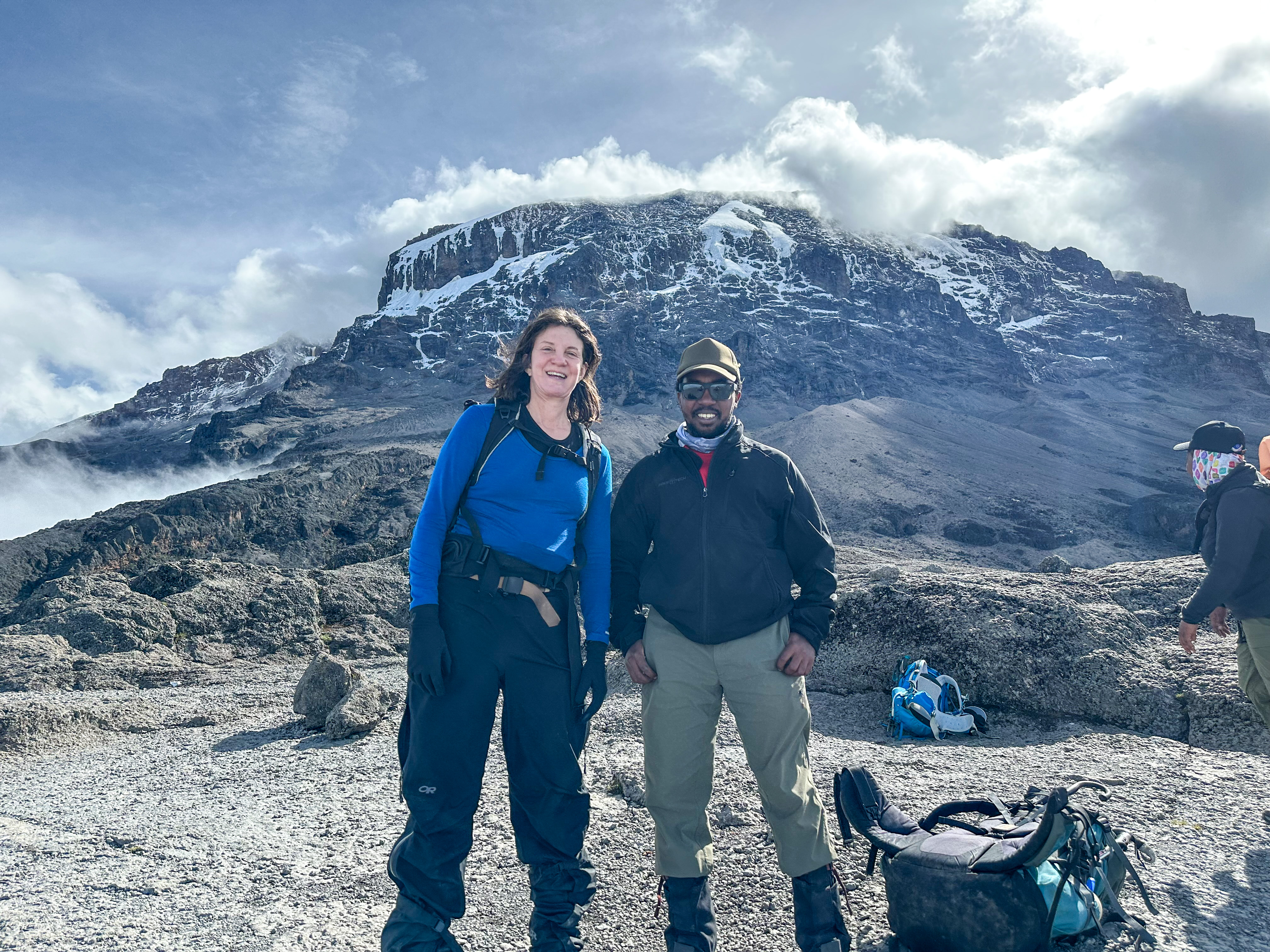 Photo Credit: Gia DeAngelis
Photo Credit: Gia DeAngelis
This trip begins in Arusha at a hotel organized by NOLS. We will organize an airport pick up and transport for you and your travel companions to the hotel and the trip will begin with an evening orientation. You’ll have the chance to rest and relax before orientation and dinner with your trip team.
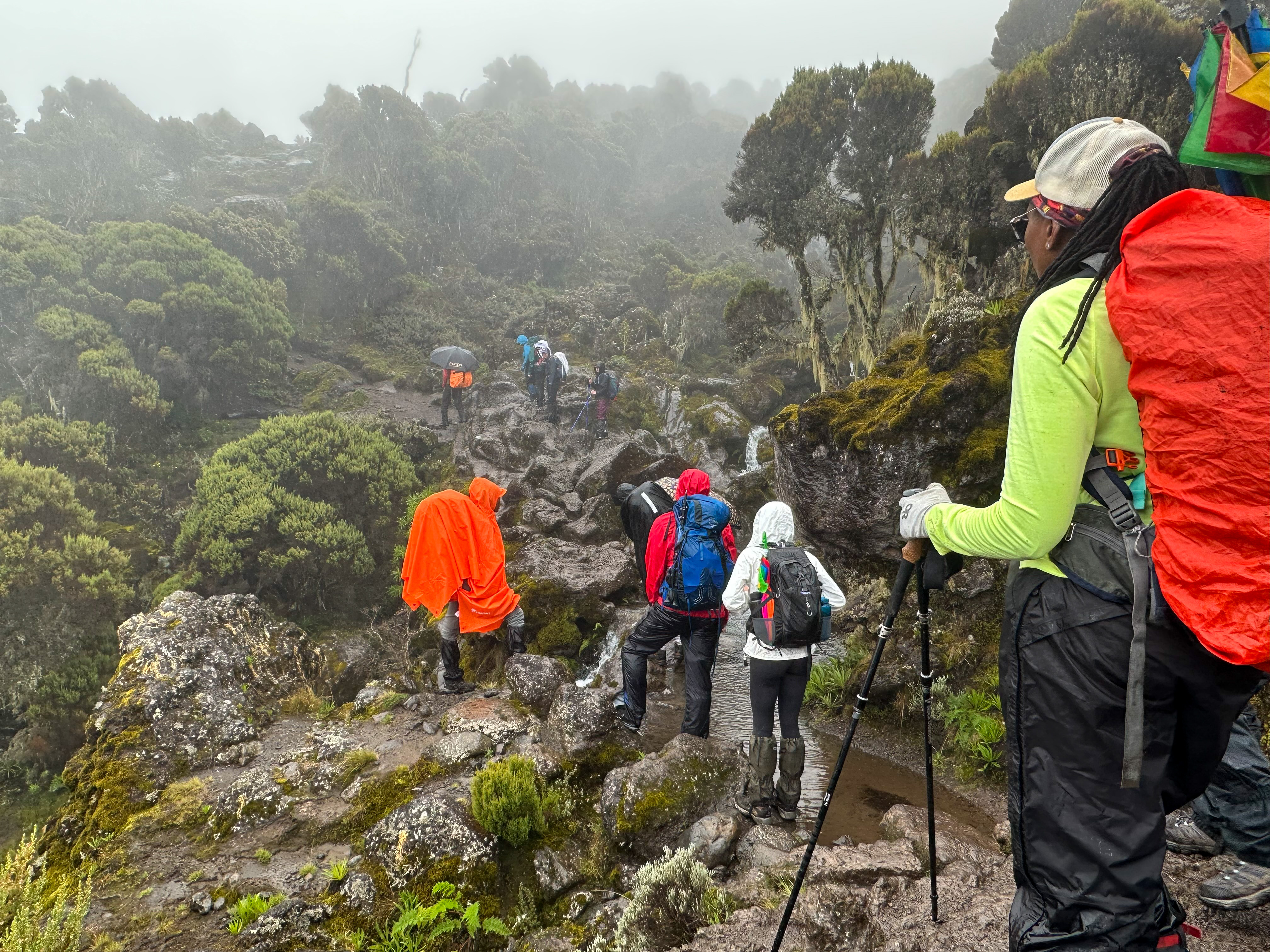 Photo Credit: Gia DeAngelis
Photo Credit: Gia DeAngelis
The next morning, we will make any last adjustments then head for the Machame Park Gate, entrance to Kilimanjaro National Park.
The first section of our hike takes us through the rainforest. Tree beards drape leisurely over branches and rich green mosses are vibrant and alive. Because April is the rainy season, the first section of our hike can be quite wet. We will prepare with appropriate gear, and as we continue to climb the skies typically open up and dry out.
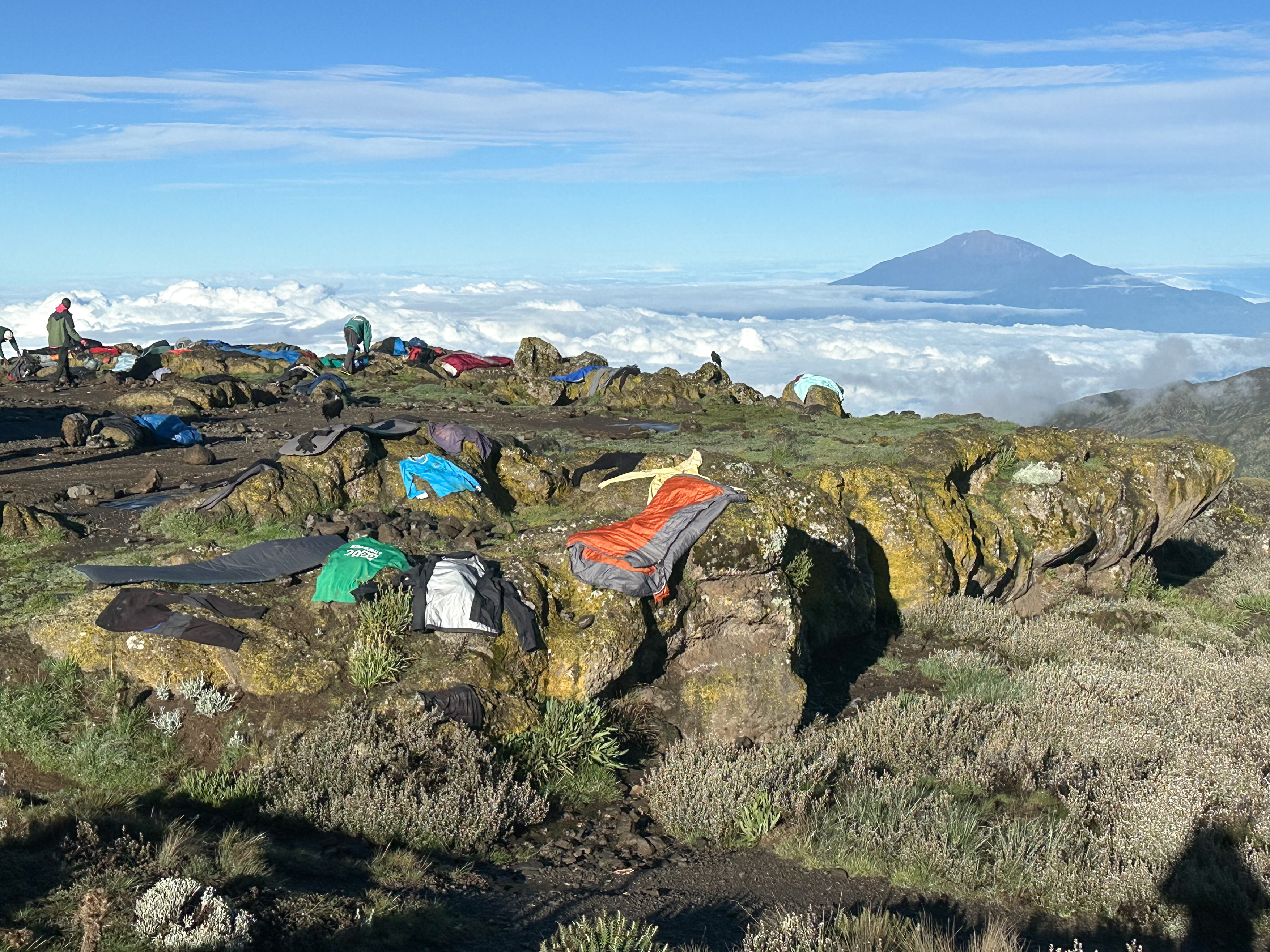 Photo Credit: Gia DeAngelis
Photo Credit: Gia DeAngelis
Kilimanjaro was once a volcano and is the largest free standing peak in the world. Although its top is perennially snow-capped, arid savannas stretch from its base in all directions. Because of its extraordinary geology we will pass through 5 distinct biomes on our climb. From the savanna we will enter rainforest, then subalpine forest, alpine meadow, and finally a glacial ice plain at the summit.
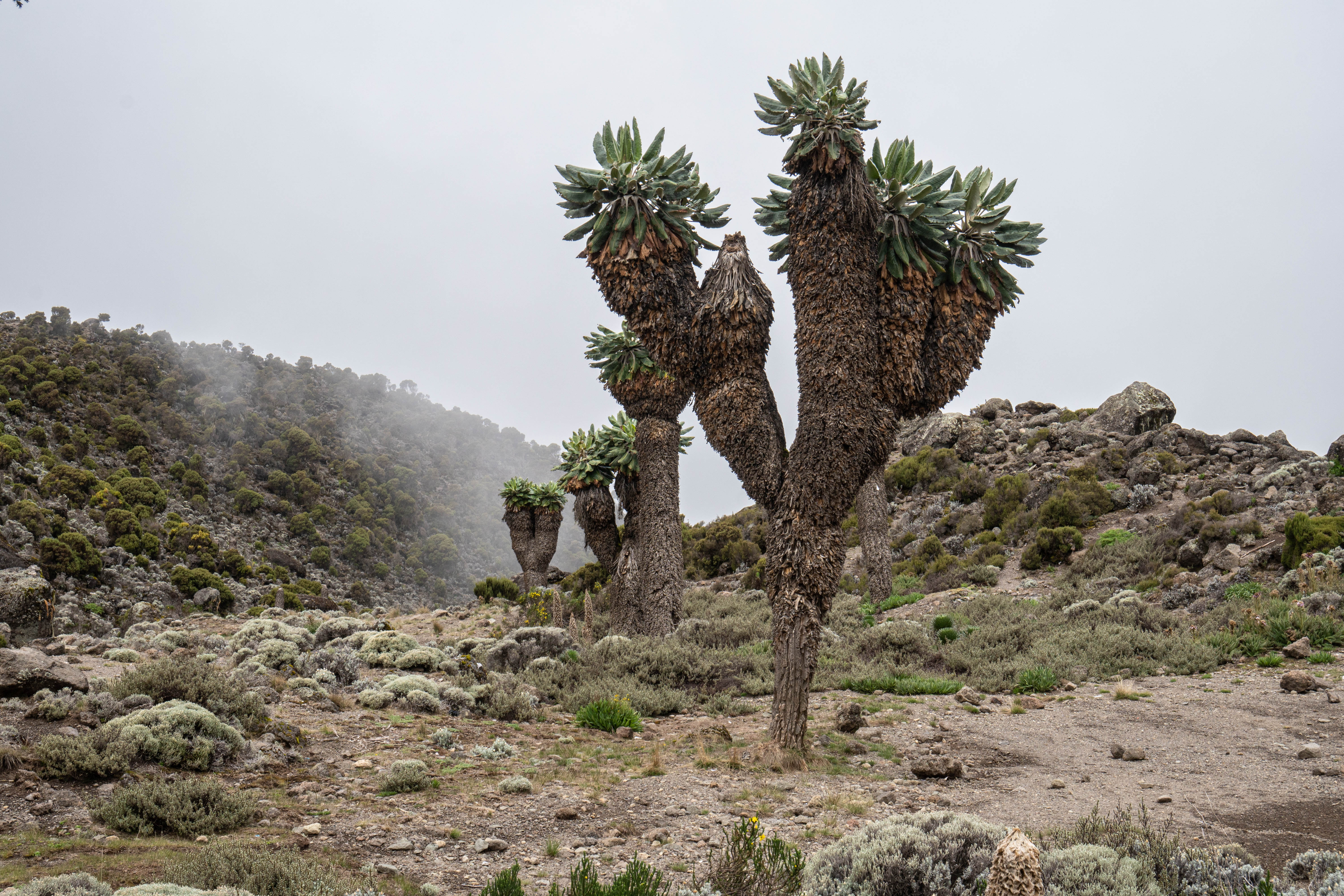 Photo Credit: Gia DeAngelis
Photo Credit: Gia DeAngelis
We will see unique equatorial, alpine vegetation along our way. And if we’re lucky, a Cape buffalo, elephant, bushbuck, or even a Colobus monkey in the forests at lower elevations.
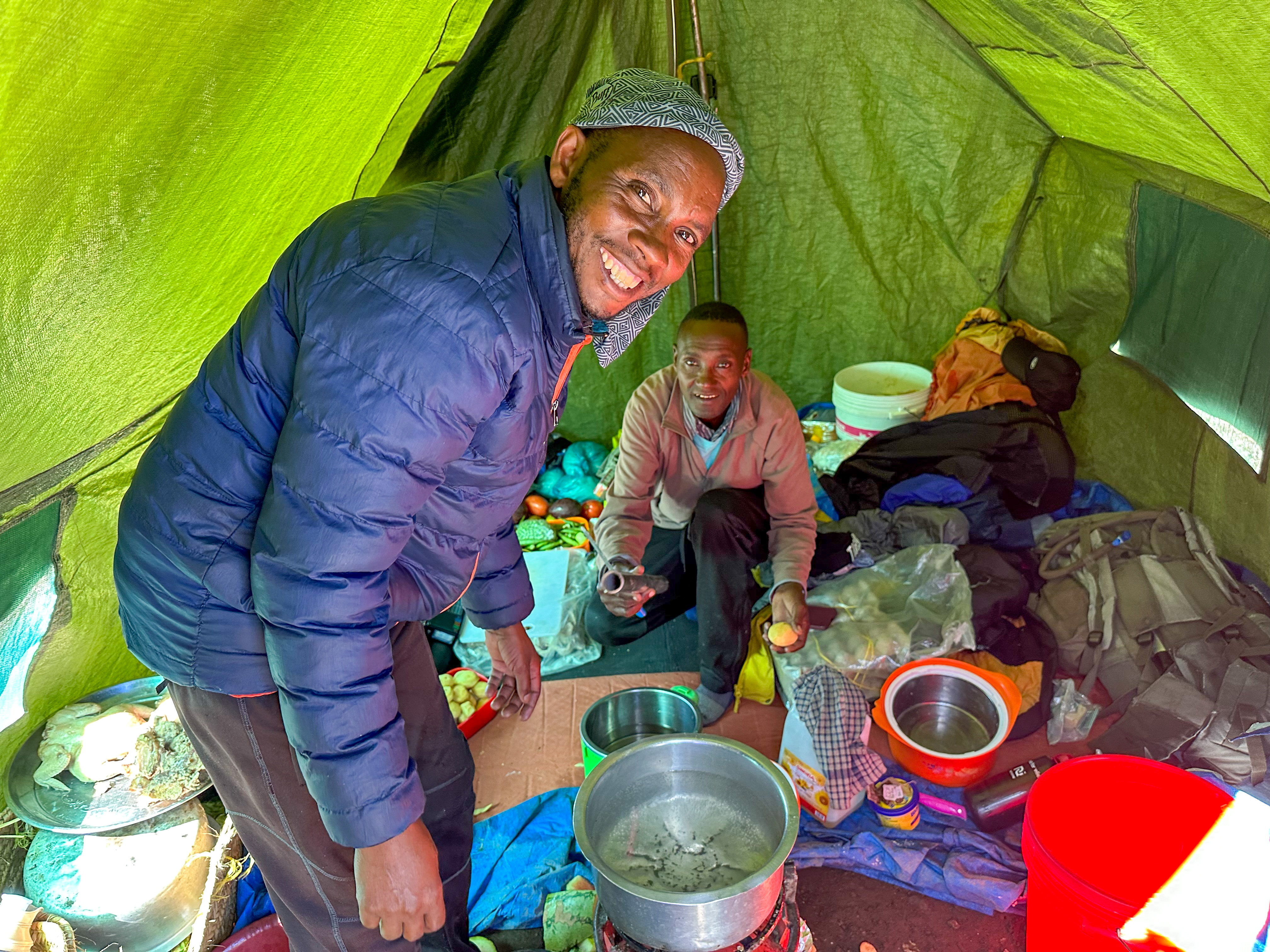 Photo Credit: Gia DeAngelis
Photo Credit: Gia DeAngelis
It is the standard on Kilimanjaro to work with porters who will haul expedition gear, food, and equipment for us on the mountain. Hiring porters supports the local economy, lightens our loads, and allows us a few extra comforts like a fully equipped mess tent (it is also required by the park). Hiking at high elevations is challenging and participants typically appreciate the extra help and chance to rest and recover in camp. During the trip, you will only carry a lightweight daypack with things you need for that day of hiking.
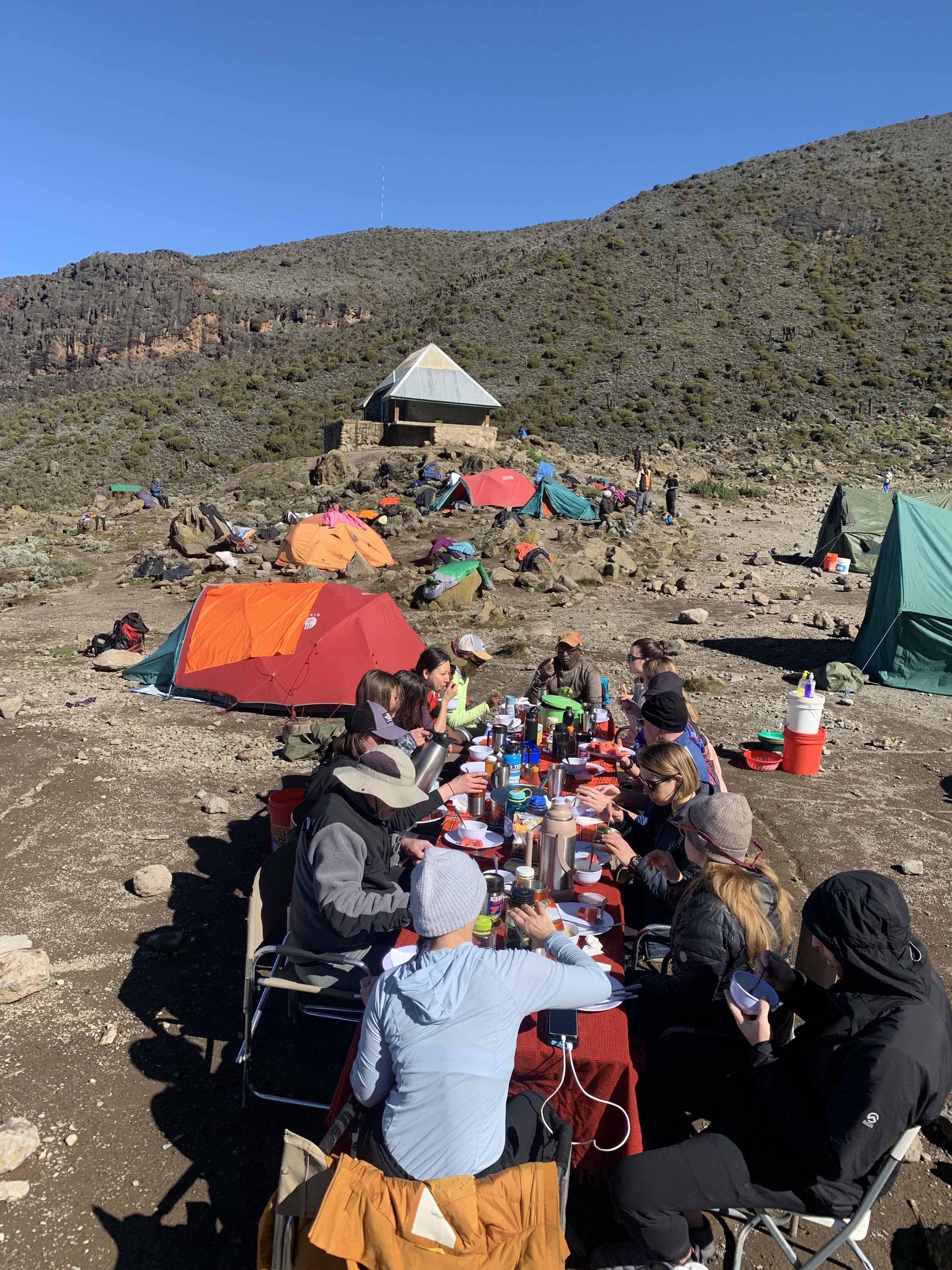 Photo Credit: David Topol
Photo Credit: David Topol
As we ascend, we will incorporate an acclimatization day into our schedule as well as “climb high, sleep low” techniques typical to mountaineering. Kilimanjaro doesn’t require any travel over technical terrain, but proper acclimatization is necessary to best prepare participants for the summit push.
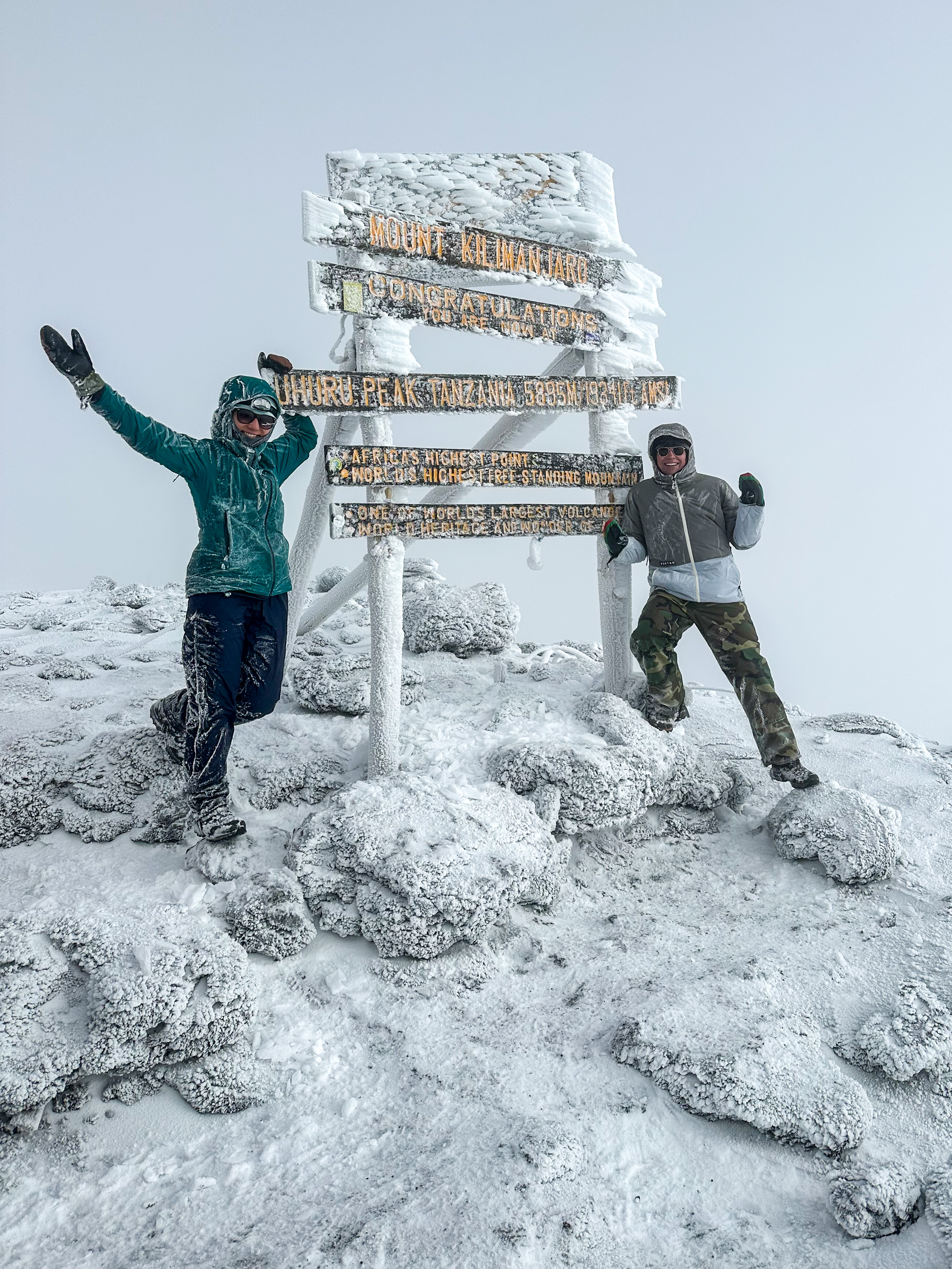 Photo Credit: Gia DeAngelis
Photo Credit: Gia DeAngelis
Day seven on the mountain will be our summit push. This is our longest and most challenging day in the field. Beginning just after midnight, we will leave from the Barafu hut at just over 15,000’ and hike to the summit gaining just over 4,000’ over 5 kilometers. At the summit, we’ll take a moment here to experience the continent’s highest point and celebrate the collective effort it took to get there.
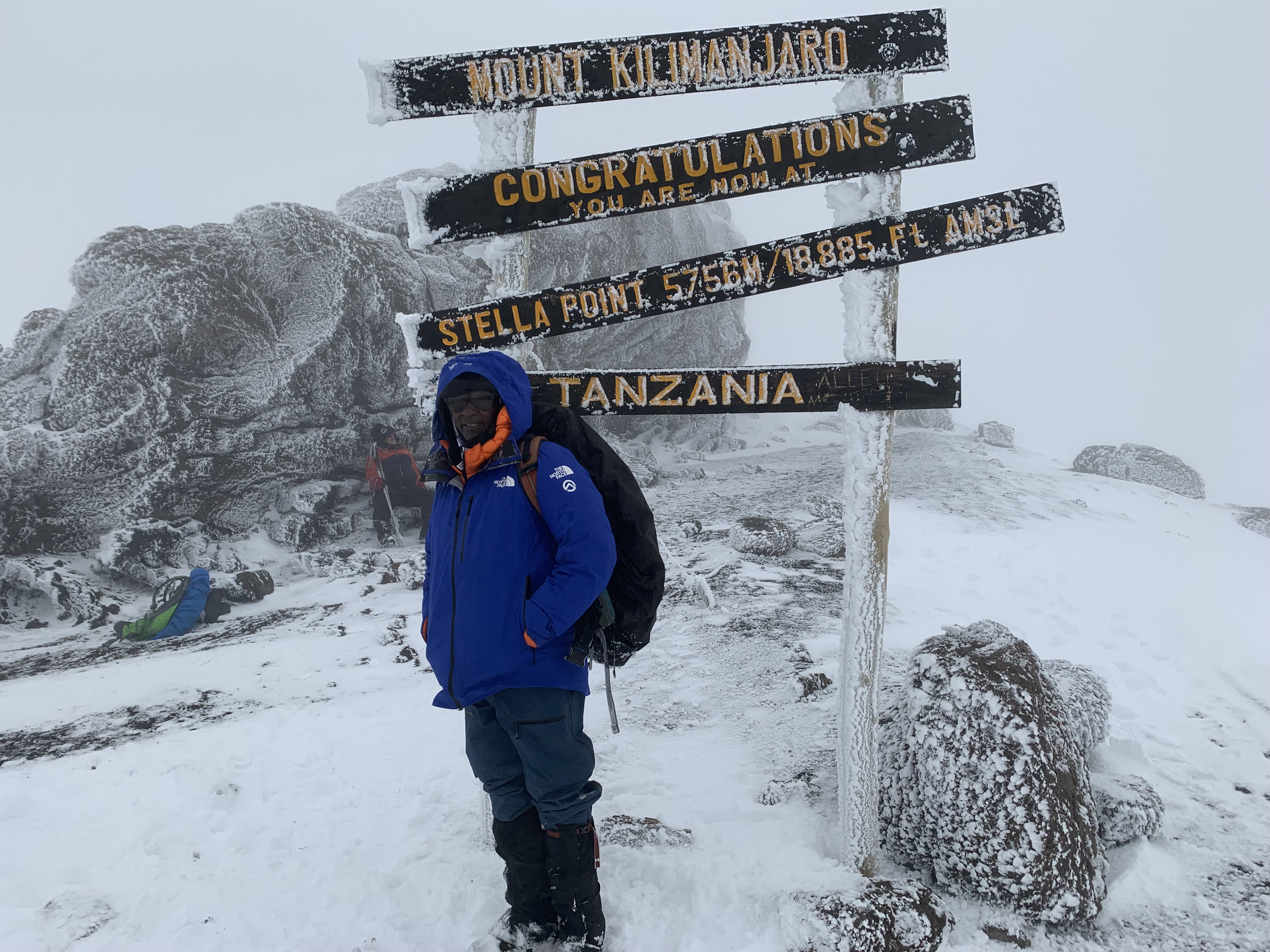 Photo Credit: David Topol
Photo Credit: David Topol
We will begin our descent on the same day to the Mweka hut. We will enjoy a good meal and a well earned night of rest. Our final day of hiking will take us back to the Machame Park gate. Back in Arusha, we will have a celebratory dinner together before parting ways to other adventures.
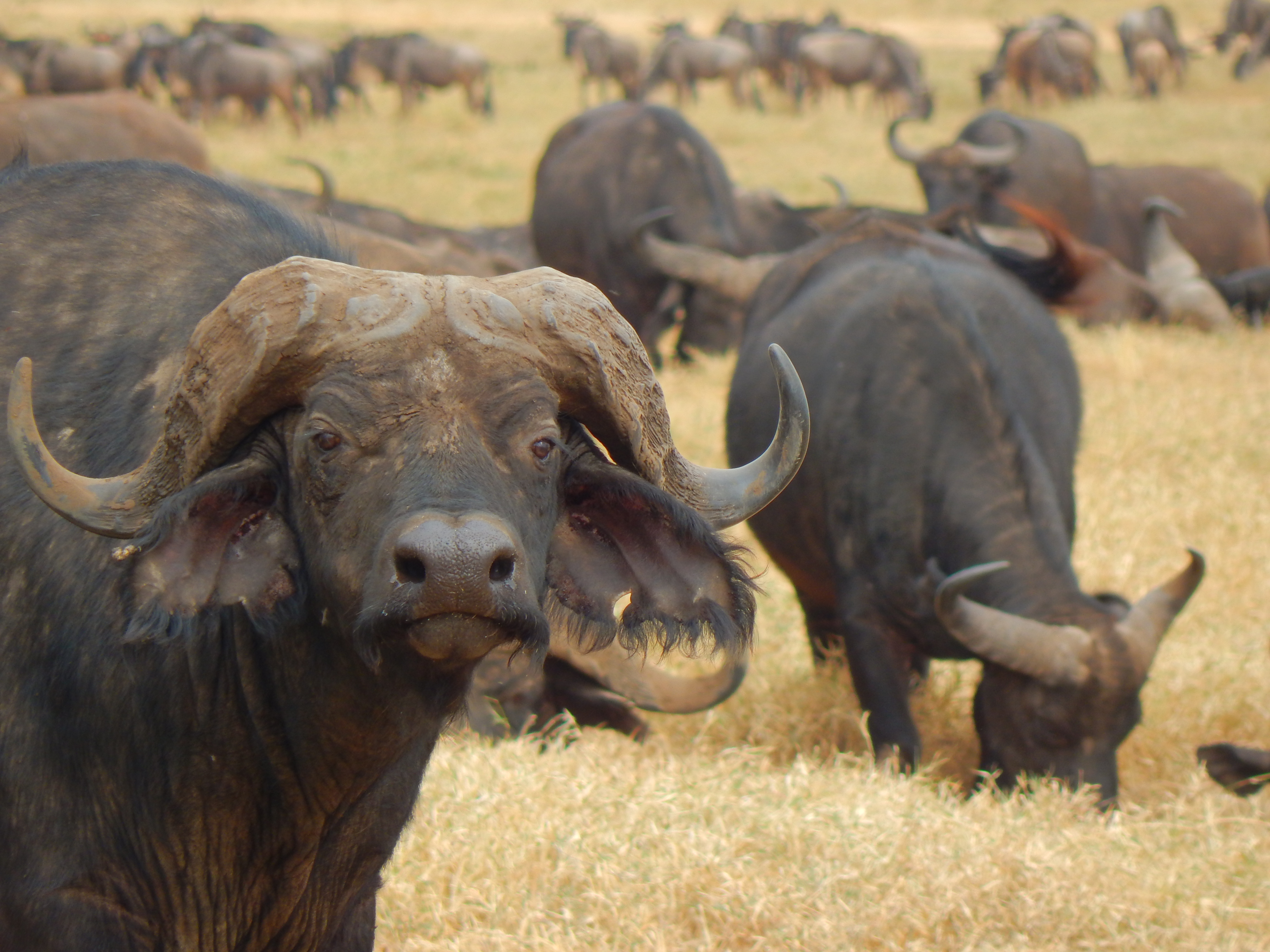 Photo Credit: KG Kagambi
Photo Credit: KG Kagambi
In Tanzania, one fourth of the land has been set aside as a reserve, conservation area, or National park resulting in a rich abundance of wildlife. Wildebeest, zebra, giraffe, rhino, lion, leopard, crocodiles, and hippopotamus all call Tanzania home. The Gombe Stream National Park in western Tanzania is the famous chimpanzee sanctuary where Jane Goodall conducted research.
Both the wildlife and the landscape are valued by Tanzanians as national treasures. You have the chance to experience both on this trip. If you can extend your trip for a few days, it would be a shame not to do a safari.
** NOLS has organized a 3-day Safari connected to our Kilimanjaro trips.



Overall Difficulty*:
*Porters carry the heavy stuff, but it’s a long hike at high elevation.
If you have questions about enrollment or including families/guests on a particular alumni trip, then contact:
NOLS Alumni Department
800-332-4280
alumni@nols.edu
